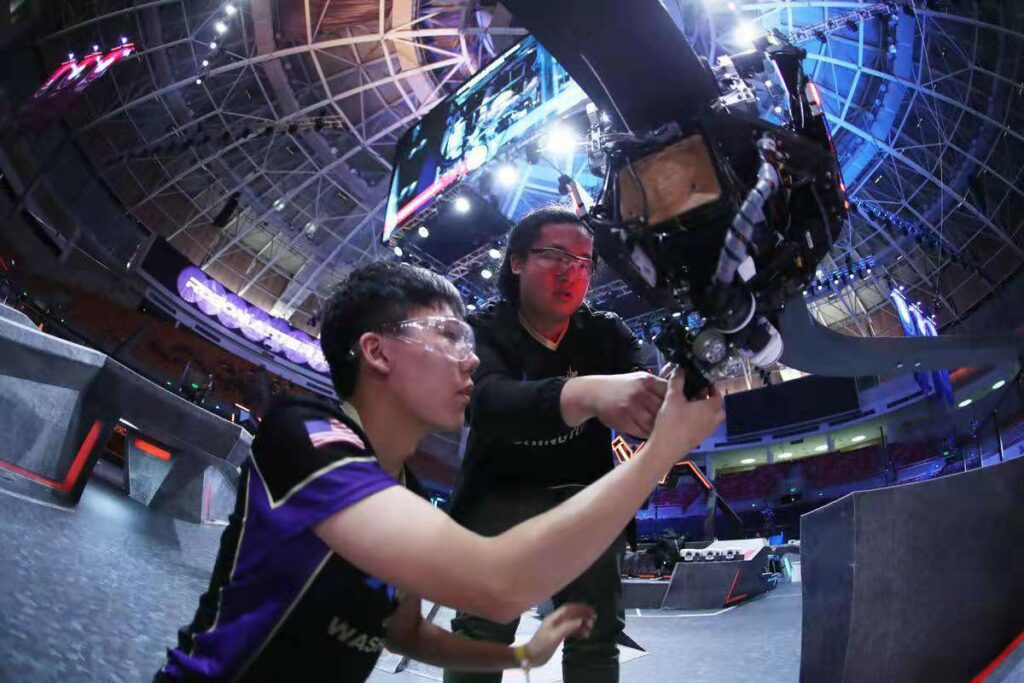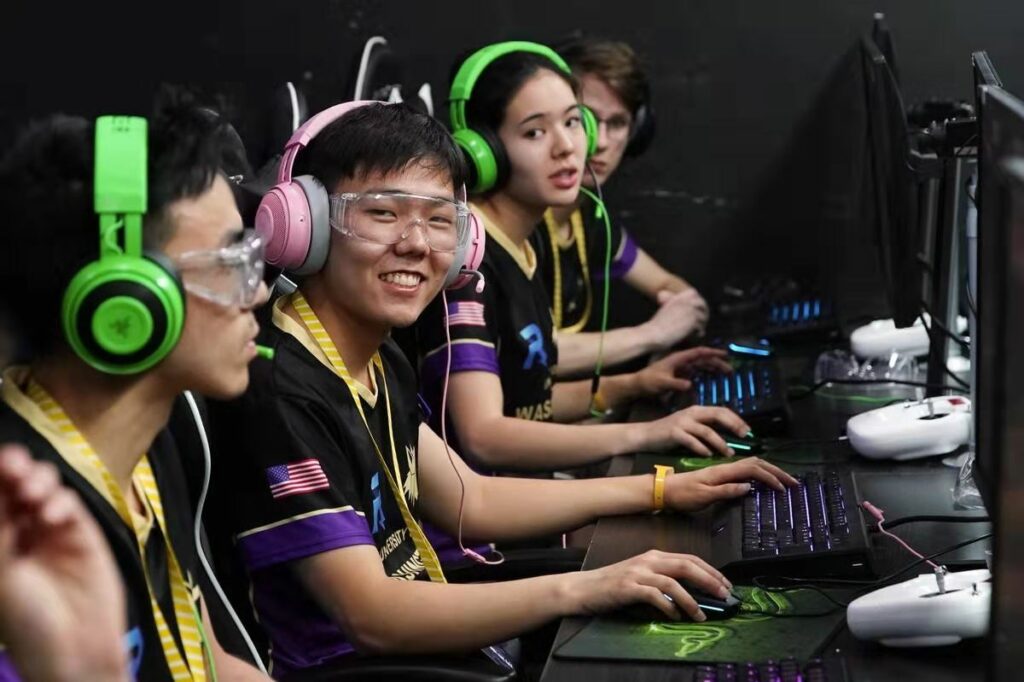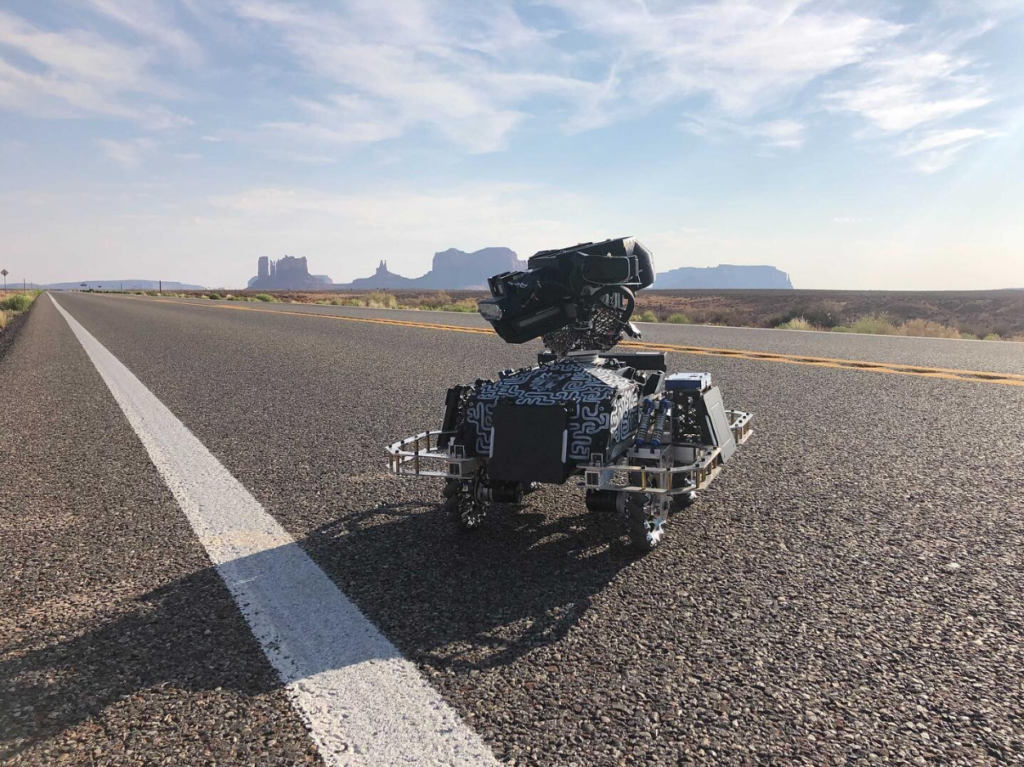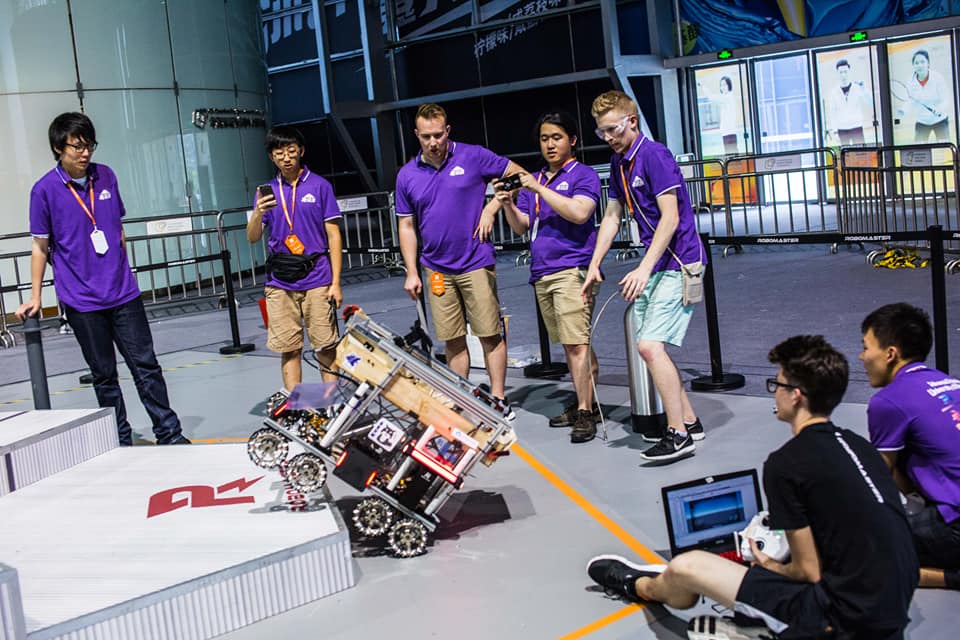We would like to get an inside look at how different roles contribute to Mujin’s success. For “Mujinian Voice” series, this time we would like to introduce Justin, who joined Mujin right after he graduated from university.
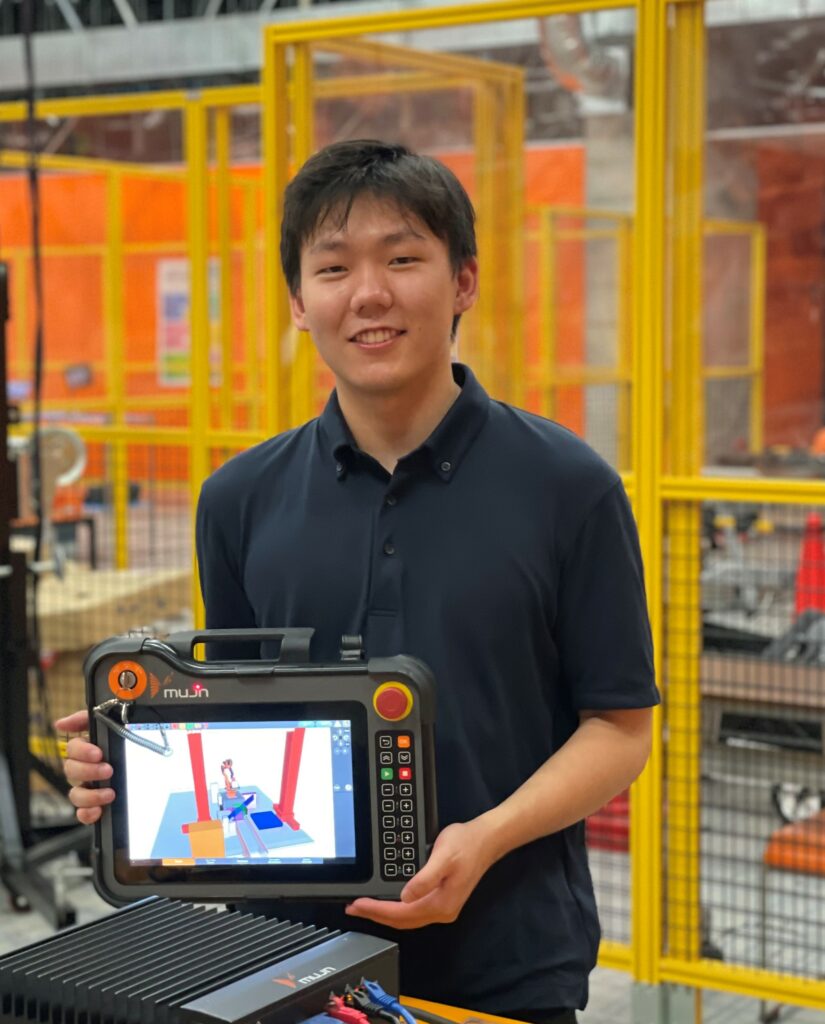
— Could you tell us about yourself? When do you become interested in technology?
I grew up in Seattle, USA, and I lived there all my life until I decided to move to Tokyo to join Mujin. Most of the time during my childhood I only focused on school and playing video games. During high school, I joined some sports teams and became more proactive and charismatic (lol).
During high school, I took programming classes just for fun. The moment I really became interested in programming and particularly in robotics at university. I chose to go to the University of Washington where I wanted to study computer science, and I joined a robotics team. This team is famous among Mujin, as some of our engineers were also part of it during their student years.
Together with the robotics team, we participated in robotics game-style competitions between universities. Every year we build between 7 to 10 robots. These robots jogged around, and we competed in a competition where we had to do some technical challenges like climbing the stairs or grabbing a box.
— Can you share more details about robotics competition?
Each university builds around 7-8 robots, and competes with 30 robots and try to accomplish the goals, whatever the goal is. There are jogging robots or another, depending on the challenge. In my year, robots should be able to climb upstairs or grab boxes and dump them into a bin on the robot to collect them. Usually, there should be a drone, which we built too to fly across the field to get a top-down view.
Every year we build new robots. We didn’t modify the old ones, as we wanted to improve the design or tried some new hardware.
I mostly worked on embedded software, setting up the communication for each device, like the motors or some sensors, and then also how we want to control those motors.
— Sounds cool! Seems your university is supporting your lab a lot.
The team was still new, and I was the second member. At that time, we didn’t have too much funding from the university. So, most of our funding was through campaigns or just donations.
— How did you get to know Mujin?
One of the robotics team members was doing an internship at Mujin. He shared that Mujin is a place where you can pursue things with curiosity, and it leads to customers. He also mentioned that people here are very passionate about what they are doing, and they love it.
After I graduated, he offered to refer me to Mujin. I became more interested because I really did enjoy robotics when I was in university. I thought it would be more natural to go into that field and continue my professional journey in robotics. I really enjoy robotics where I can use my skills and get to directly see what I write on the computer change or happen in front of me. This part gets me interested in robotics the most.
Also, I was looking to explore different living situations since I’ve been in Seattle only. What attracted me about Mujin is the combination of robotics and Japan.
The reason why I wanted to work on the Backend team is its team leader. My friend, who is currently a full-time employee, described him as a caring leader. And I felt that in the earlier interviews too.
— Great to hear that. How was your job interview?
The first interview was a get-to-know each-other chat. And the second one was just a short programming but the 3rd one, 2 days project, was challenging for me. This interview is possible to succeed if you push yourself hard for these 2 days. At the same time, you are allowed to use any resources you need to accomplish the project.
One reason I chose this team is great leadership, and another reason is that the Backend team touches a lot of parts of the system, so I wanted to have opportunities to learn more about the Mujin system and obtain new skills.
Advice for the Backend team candidates: being familiar with networking and docker and focusing on the fundamental data structure.
— What’s your responsibility?
My responsibilities are changed depending on the project assigned to me. Sometimes I am working on test simulators, adding a program to make the conveyor move or mobile robot control to work with the Mujin system, or setting up demo cells for the exhibition where we also plan to try new features. It is very impressive that I can see my codes working at the actual customer sites not just work in a lab.
— What do you like about Mujin?
I like its startup environment; it gives me the opportunity to grow up. My work is mainly programming, and I enjoyed helping set up robot cells overseas. I got a different understanding and skills about the robot and its cell. At the same time, I do enjoy doing some software development and working on long development features. I do like to have a middle gum between working with robots, but then working on software as well.
One more important point to mention here is people. People at Mujin are motivated, and they keep pushing their own motivation so that we can make the change with automation all around the world and it will contribute to society.
Working at Mujin is exchanging ideas with smart people. You can change your ideas; you can improve yourself. You can learn from others about how they approach problems.
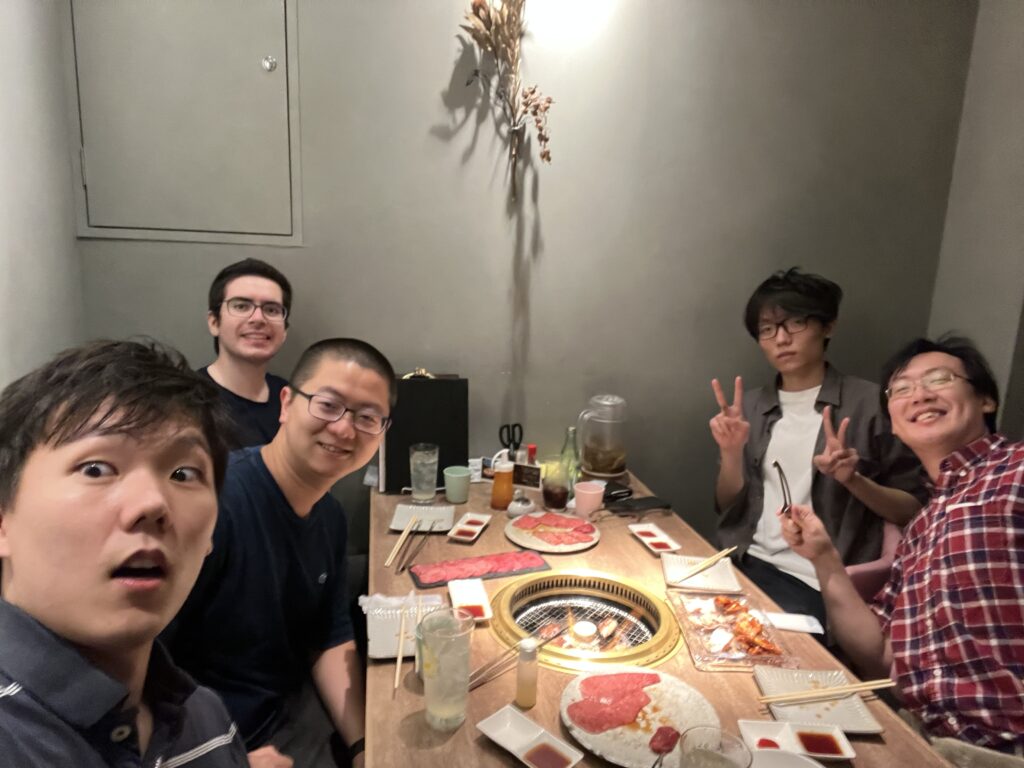
— Daily life in Japan, is it difficult for a foreigner without the Japanese language?
Japan is different from America. But, besides the language barrier, I don’t think it’s very challenging because living in a city my whole life, and it just feels like moving from one city to another. I have friends here who can help if I need anything, and as far as ordering food or doing daily errands, I can get by with just limited Japanese.
The food here is amazing. My favorite one is yakiniku. I like Japanese meat. The quality is incredible.
— What do you want to do in the future?
Either, I like to keep working in Robotics or explore the rocket industry, like space exploration. I feel both industries push humans’ technology forward, and I can really make an impact by typing on the computer.
Robotics is the future. Automation of everyday labor tasks, which is both cost and time efficient, will help people to have more resources. This will reveal solutions to help society and have freedom to be creative.
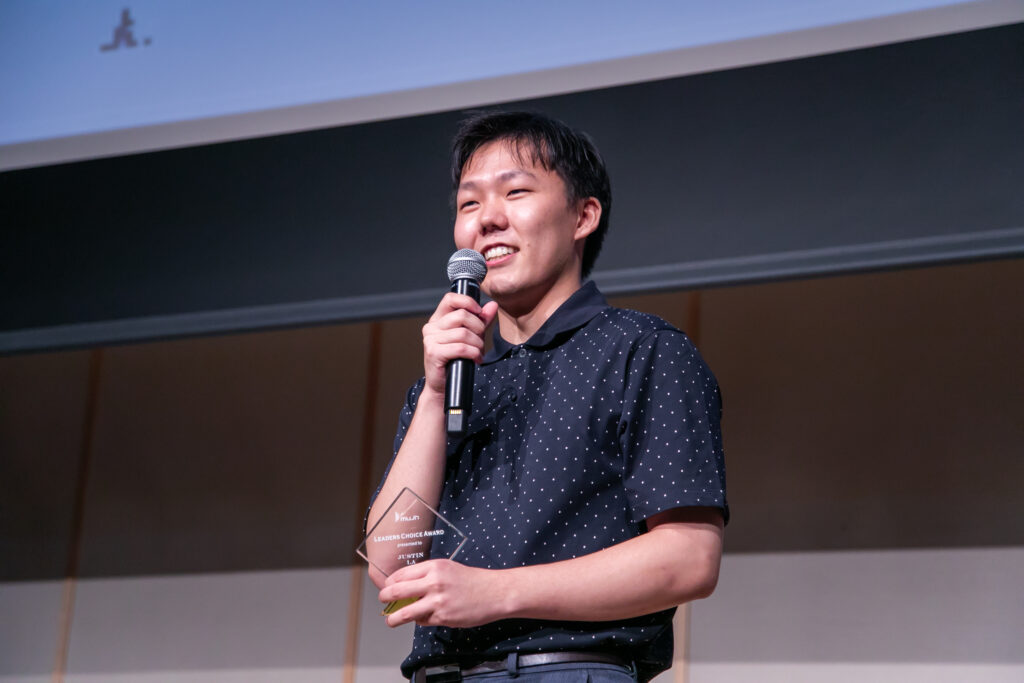
From the author: This year Justin got a special award from Mujin managers. This award recognizes Justin’s achievements which directly contribute to Mujin’s growth and success.
Justin earned the trust and credibility of many Mujin employees. He never gives up, and always ensures that the system runs smoothly. Justin showed a strong commitment to several important projects for Mujin’s future worldwide.
Justin is very reliable, diligent, proactive, and has a respectful attitude towards work and customers. According to managers Justin deserves recognition as a role model.
https://mujinspire.mujin.co.jp/en/2022/08/recognition-at-mujin-awards/

